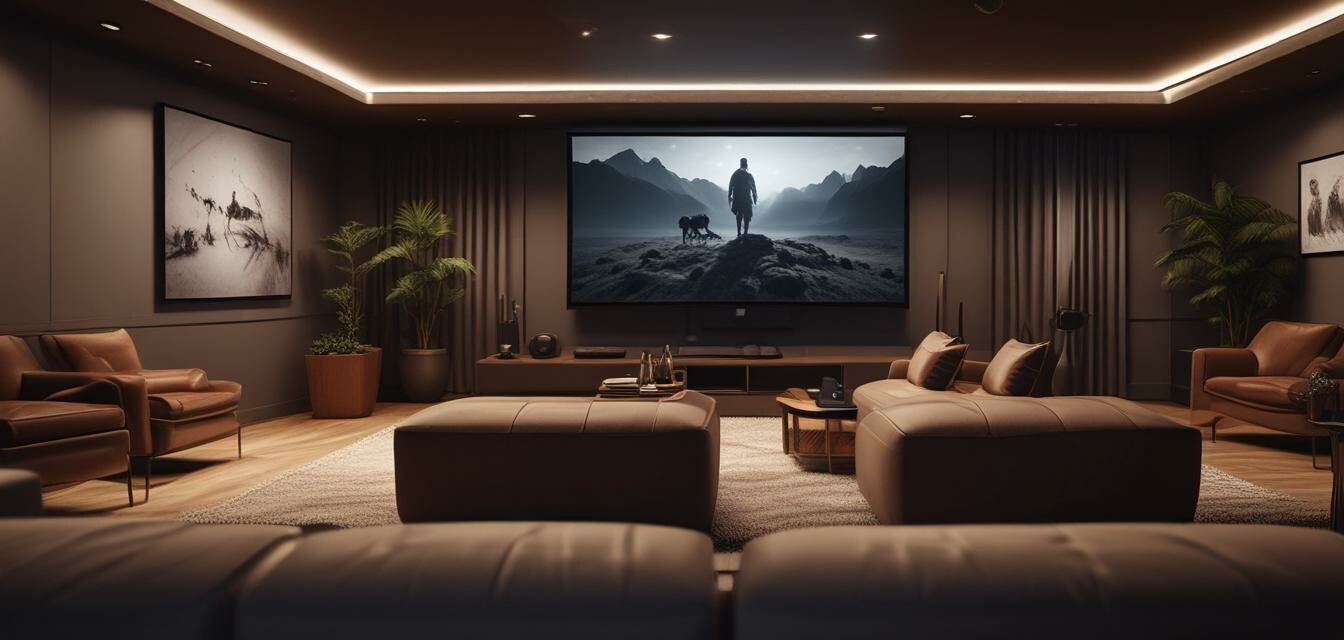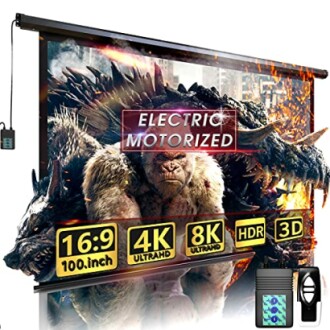
How to Choose the Perfect Home Theater Projector
Key Takeaways
- Consider room size and ambient light when selecting a projector.
- Evaluate resolution, brightness, and throw distance for optimal performance.
- Motorized and fixed-frame screens can enhance visual experience.
- Choose the right aspect ratio to match your projector and content.
- Look for customer support and warranty options for peace of mind.
Choosing the right projector for your home theater can be a daunting task. With so many options available, understanding the essential features and specifications will help you make an informed decision. This comprehensive guide will break down everything you need to know about selecting the perfect home theater projector based on your specific needs and room dimensions.
Understanding Projector Basics
Before diving into the specifics, let's cover the basics of projectors. Home theater projectors are primarily distinguished by their:
- Brightness: Measured in lumens, this indicates how well a projector performs in different lighting conditions.
- Resolution: This affects the clarity of the image. Common resolutions include 1080p and 4K.
- Throw Distance: The distance between the projector and the screen significantly impacts installation and image size.
- Aspect Ratio: Commonly 16:9 for HD content and 2.35:1 for a cinematic experience.
Determining Your Needs
Your choice of projector largely depends on several factors:
- Room Size and Layout: Does your room allow for a short throw or long throw projector?
- Seating Position: How far will your seating be from the screen?
- Ambient Lighting: Is your room dim enough for optimal viewing, or do you need a projector that can perform well in bright environments?
Choosing the Right Projector Type
There are several types of projectors available, each suitable for specific needs:
- LCD Projectors: Great for bright environments and provide excellent color accuracy.
- DLP Projectors: Known for their high contrast and sharp images, ideal for darker settings.
- LED Projectors: Energy-efficient with a longer lifespan, but may lack some brightness compared to other types.
- Laser Projectors: Offer high brightness and color precision, perfect for any lighting conditions.
Comparison Table: Key Features of Projector Types
| Projector Type | Brightness | Color Accuracy | Lifespan |
|---|---|---|---|
| LCD | High | Excellent | Up to 10,000 hours |
| DLP | Medium to High | Very Good | Up to 15,000 hours |
| LED | Medium | Good | 20,000+ hours |
| Laser | Very High | Outstanding | 20,000+ hours |
Consider the Screen
Choosing a suitable screen is just as essential as selecting your projector. Here are two great options:
Aoxun 100" Motorized Projector Screen
This high-quality screen is perfect for both indoor and outdoor movies, featuring a quiet motor for easy operation and a durable design.
Learn MoreThe Aoxun 100" Motorized Projector Screen is an excellent choice for versatility. It allows you to enhance your viewing experience effortlessly.
VIVIDSTORM 120" CineVision Pro Fixed Frame Screen
Designed for ultra-short throw laser projectors, this screen delivers vivid colors and excellent brightness, making it ideal for any room.
Learn MoreInstallation Tips
Proper installation is key to enjoying your home theater projector. Here are some helpful tips:
- Determine the right throw distance based on your projector specifications.
- Mount the projector securely on the ceiling or use a stand for stability.
- Calibrate settings to suit your viewing preferences once everything is set up.
- Consider acoustic treatments for the room to enhance sound quality.
Final Considerations
When selecting a projector, make sure to:
- Do thorough research on brands and customer service ratings.
- Read reviews and testimonials to gauge user satisfaction.
- Evaluate warranties and support, ensuring you can get help if needed.
Pros
- Wide range of options suitable for different needs and budgets.
- Enhanced viewing experience with the right projector and screen combination.
- Potential for a cinematic experience at home.
Cons
- Initial setup may require effort and technical knowledge.
- Ambient light may impact viewing experience unless you opt for higher-end models.
- Ongoing maintenance may be needed for bulb replacements or cleaning.
Learn More
For additional resources regarding home theater systems, check out our articles on premium projectors and screens and [smart home integration. You can also explore high-end Blu-ray players for an improved home cinema experience.



